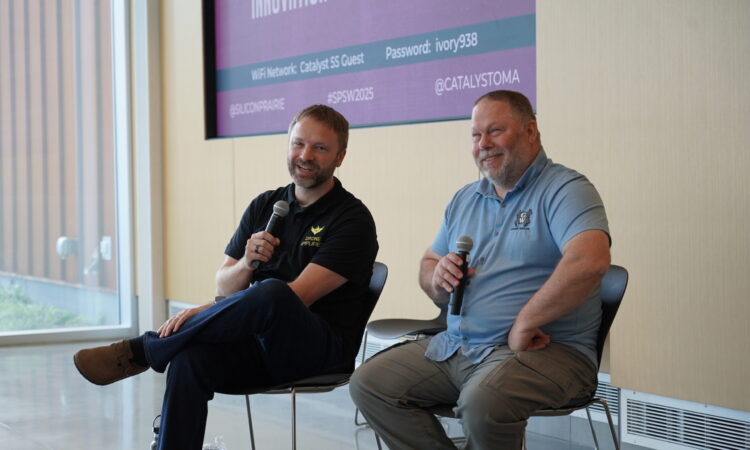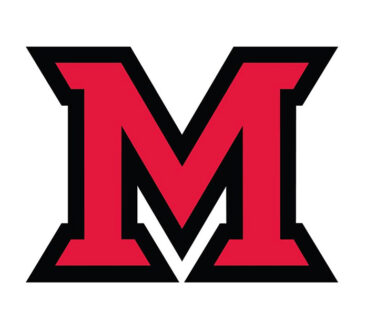At-risk federal SBIR funding is transformative for some Nebraska startups. Even with uncertainty, more should apply

In 2010, Carrick Detweiler joined the University of Nebraska-Lincoln as a professor working on drones and robotics. While experimenting with a water-sampling drone, would-be clients came knocking, asking, “Hey, when can we buy that?” Detweiler recalled.
“We’re like, ‘Well, we kind of need a team of graduate students right now to get it to work,’” he said. “But I’ve always been interested in entrepreneurship, and realized with another faculty member … let’s try getting this out in the real world.”
Over time, that work became Drone Amplified, Detweiler’s startup that uses drones for controlled burns, managing avalanches and whale tagging. To get there, he had support from a cornerstone federal program sometimes nicknamed America’s seed fund: The Small Business Innovation Research (SBIR) program.
Nebraska startups’ use of SBIR funds lags significantly behind surrounding states. From 2020-2024, Iowa had 43 Phase 1 awards, Kansas had 51, Colorado had 805, and Wyoming 58, according to a Silicon Prairie News analysis of SBIR data. In that same period, Nebraska had just 28 such awards.
That should change, said Grain Weevil Co-founder and CEO Chad Johnson. Johnson and Detweiler spoke on a panel about federal funding for startups held as part of Silicon Prairie Startup Week. The Oct. 9 panel was organized by the Nebraska Business Development Center and hosted by Catalyst.
The application process is very competitive, however SBIR funding can be transformative, Johnson said. Grain Weevil has received several SBIR awards from the National Science Foundation.
With the grants, “We’re sitting at about $2.6 million in non-diluted funding, which is huge for a hardware startup,” Johnson said. “It’s really easy to give away your equity because it takes so long to build devices and get them customer ready.”
Applying takes persistence, but no need to be intimidated
Applying for SBIR, or its sibling, the Small Business Technology Transfer (STTR) program, can sometimes feel like an overwhelming and intensive process, Johnson said. There are many avenues to apply for the program — be it through the National Science Foundation, the U.S. Department of Agriculture or various other parts of the government and military. Each has its own focus for what projects to fund.
Then there’s the application itself. Grant writing is no easy task, especially when being vetted by federal agencies for ideas that have to be technically possible but also have a clear path to being a viable business.
“That’s where a lot of people make mistakes” with grant writing, Johnson said. “They’re trying to write a grant that are these super innovative research projects, but if they aren’t exactly matched up with how your business is going to move forward, then it all is a distraction.”
Both Johnson and Detweiler emphasized the importance of storytelling in grant applications. Explaining the details of a new piece of hardware or an innovative approach to solving a particular problem can quickly lose the attention of the panels evaluating SBIR applications.
“You have to get everyone as excited as possible in those first two pages (of the application), because they’re only going to poke holes in it afterwards, and that is the storytelling and being able to really convince them” your idea matters, Detweiler said.
Detweiler applied four times before getting his initial SBIR grant approved for Drone Amplified. Part of the lesson from his effort is to stay determined while also being flexible.
“The first two that we submitted were focused on, basically, insurance for drones, which was a little too early and super boring,” Detweiler said. So he pivoted to using drones for controlled burns. The next SBIR application was rejected, “but scored reasonably well, and so then it was just kind of filling in some of those gaps” for a successful award.
Johnson had better luck with the process. The NSF was specifically looking for startups working with robotics and agriculture, which was a perfect fit for Grain Weevil. He also took advantage of a Nebraska Department of Economic Development grant that helps startups cover the cost of supporting the business while applying for the SBIR program. With it, Johnson hired a graduate student to write the initial grant application.
Another important step: meeting with representatives from the SBIR program and the NSF to talk about what Grain Weevil needed to have in its application for a better chance of success. During that, Johnson learned not to be intimidated by his lack of technical background in robotics.
“We are probably, I might say, the least technical people to ever get an SBIR from the NSF,” Johnson said. “How many SBIR (applications) aren’t from a Ph.D.? Not very many … but it’s all about how you articulate your problem, articulate your solution to the problem, differentiate yourself from all the other people that are trying to get funding, and that will go a long way.”
Startups should engage even as SBIR funding is at risk
Even as Johnson and Detweiler encouraged Nebraska startups to apply for SBIR funding, the program is in dire straits. The current administration has pursued cuts to agencies, including to the NSF that administer the SBIR. And as of this story’s publication, the federal government is shut down, and Congress has not reauthorized the SBIR program for the next fiscal year.
“If no further action is taken by Congress, federal agencies may not be able to award funding under SBIR/STTR programs and SBIR/STTR solicitations may be delayed, cancelled, or rescinded,” says a disclaimer on the SBIR website. “Current applicants and awardees should reach out directly to participating agencies with questions regarding active awards or applications.”
This also puts Johnson and Detweiler in a tough spot. “Right now, we have $750,000 in our (National Science Foundation) ATM that is not accessible,” Johnson said. “We were supposed to withdraw $500,000 of that sometime at the end of September.”
But SBIR funding was already paused after too many participants tried to withdraw their money at the same time. Now, there’s a release schedule, so Grain Weevil will still be able to receive the remaining grant funds.
For Drone Amplified, roughly 60% of sales are to the federal government. Losing that during a shutdown isn’t easy, but with a long backlog of other orders, the startup can refocus until federal clients are ready.
“During the last shutdown, we were much smaller and it was much more critical,” Detweiler said. SBIR funding was a lifeline.
“We couldn’t get money out at that point, but we knew we had this continuity of funding, which was really helpful to be able to not completely panic or have to totally pivot to something else to pay the bills.”
Even amid federal uncertainty, Detweiler and Johnson still encouraged Nebraska startups to apply to SBIR. Doing so will mean applications are already in the system if or when the program is back up and running.
“My mindset, whether they cut the money or not … just make sure that you’ve done everything that you can, that when you put a proposal in, that it gives you the best chance to be successful,” Johnson said.
At the same time, state programs like the Business Innovation Act have also experienced cuts, putting another squeeze on funding. Startups like Grain Weevil have benefited from combining SBIR funding with Nebraska’s prototype grant.
Dan Curran, executive director of the Nebraska Business Development Center, said that this is the right time for the Nebraska startup community to make its voice heard.
“We all have to get political, and I don’t mean in an angry way,” Curran said. “Let your state senators and the congressional delegation know if these (programs) are important to you, how they’re important to you, because that’s the information they need.”
Lev Gringauz is a Report for America corps member who writes about corporate innovation and workforce development for Silicon Prairie News.




